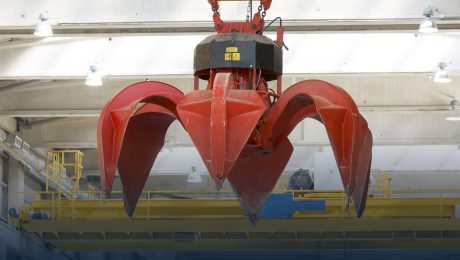Živković Samardžić advises AIK Banka on the acquisition of Alpha Bank Srbija
Wednesday, 12 April 2017
by ZS Law
- Published in Deals and Cases
Tagged under:
Miloš Milošević, Financial Services, Branislav Živković, Sava Pavlović, Corprorate and M&A
Top-Tier Ranking in Chambers Europe 2017 for Živković Samardžić Dispute Resolution Practice
Monday, 10 April 2017
by ZS Law
Živković Samardžić, one of the Serbia’s leading full-service independent law firms has been ranked as a top-tier Serbian Dispute Resolution firm by leading legal directory Chambers and Partners in its 2017 Europe edition. The firm has retained its top-tier Dispute Resolution Chambers ranking for the fourth year running and has also improved its ranking in
- Published in Uncategorized
Different Courts, Different Viewpoints: Article 26 of the Law on Enforcement and Security
Sunday, 26 March 2017
by ZS Law
[vc_row][vc_column][vc_single_image image=”5466″ img_size=”535×356″ alignment=”center”][/vc_column][/vc_row][vc_row][vc_column width=”1/2″][vc_column_text] The improvement of efficiency and speeding up of enforcement proceedings were among the top priorities emphasized as justification for the enactment of the new Law on Enforcement and Security (Official Gazette of the Republic of Serbia, No. 106/2015 and 106/2016, hereinafter referred to as: “the Law”). Among the provisions intended
- Published in Insights
Živković Samardžić advises South Central Ventures on a transaction involving its portfolio company Dry Tools
Tuesday, 14 March 2017
by ZS Law
- Published in Deals and Cases
Živković Samardžić secures injunction for Prva against Pink International Company
Friday, 03 March 2017
by ZS Law
- Published in Deals and Cases
Tagged under:
technology, Media and Telecommunications, Intellectual Property, Kruna Savović, Miloš Stojković
Important Victory for the Slovenian Energy Company in the Montenegrin Court of Appeal
Tuesday, 28 February 2017
by ZS Law
- Published in Deals and Cases
IFLR 1000 recognizes Branislav Živković and Miloš Milošević as the leading lawyers
Friday, 14 October 2016
by ZS Law
IFLR1000 Financial and Corporate 2017 directory has once again ranked Živković Samardžić, one of the Serbia’s leading law firms, for its financial and corporate practice as well as recognized Branislav Živković, Živković Samardžić managing partner as the leading lawyer in the M&A and Real Estate Finance and Miloš Milošević, partner and head of Dispute Resolution,
- Published in Uncategorized
Živković Samardžić advised Nestlé on Froneri ice cream joint venture with R&R
Monday, 03 October 2016
by ZS Law
- Published in Deals and Cases
Waste-to-energy legal regime in Serbia
Sunday, 25 September 2016
by ZS Law
[vc_row][vc_column width=”1/2″][vc_column_text]Serbia was granted EU candidate status in March 2012 and its environmental policies and legal framework are strongly influenced by the EU accession negotiations. EU acquis screening of the Chapter 27 – Environment has been completed on 21 November 2014. While the European Commission has noted, in its 2015 assessment report, that Serbia is
- Published in Insights
Competition clearances secured for Petrol d.d. Ljubljana in Serbia, Montenegro and Macedonia
Monday, 08 August 2016
by ZS Law
- Published in Deals and Cases









